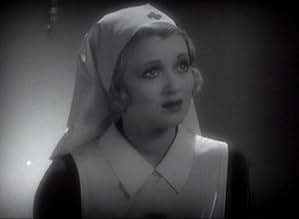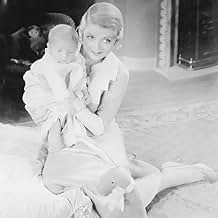PUNTUACIÓN EN IMDb
5,8/10
385
TU PUNTUACIÓN
Añade un argumento en tu idiomaA war officer who is thought dead returns to the woman he loves, only to find that she has remarried.A war officer who is thought dead returns to the woman he loves, only to find that she has remarried.A war officer who is thought dead returns to the woman he loves, only to find that she has remarried.
- Premios
- 1 premio en total
Daisy Belmore
- Tibbetts - Nurse
- (sin acreditar)
Billy Bevan
- Departing British Soldier
- (sin acreditar)
Edmund Breon
- Tom Kent
- (sin acreditar)
Eddy Chandler
- Captain Peters
- (sin acreditar)
Jay Eaton
- Dancing Doughboy
- (sin acreditar)
Bill Elliott
- Dancing Doughboy
- (sin acreditar)
Fred Esmelton
- Ponsonby's Butler
- (sin acreditar)
Mary Forbes
- The Duchess
- (sin acreditar)
Elizabeth Forrester
- Evelyn Kent
- (sin acreditar)
Robert Greig
- Hansom Cabby
- (sin acreditar)
Olaf Hytten
- Aide to Major General
- (sin acreditar)
Claude King
- Major General Visiting Hospital
- (sin acreditar)
Reseñas destacadas
The first of four films Constance Bennett did with Joel McCrea was one that you'd
better bring the bath towels to the theater if you saw it. I'm sure even the men had
a tear or two seeing what Connie went through.
An American nurse in London during World War I Bennett has American ace Joel McCrea and stiff upper lip British major Paul Cavanaugh after her. She loves McCrea and can't see Cavanaugh.
But when McCrea gets shot down and goes missing in action she's very pregnant and the sympathetic Cavanaugh is ready to marry her and make her respectable.
The usual complications ensue after that and Bennett pays a heavy price for her romances.
Born To Love fits rater neatly into that category called women's pictures. Women who worried where the next meal might come from, plunked don their nickel and could sympathize with a woman like Bennett and her complicated romantic life.
For this type the film is OK, but I doubt we'll see a remake in this century.
An American nurse in London during World War I Bennett has American ace Joel McCrea and stiff upper lip British major Paul Cavanaugh after her. She loves McCrea and can't see Cavanaugh.
But when McCrea gets shot down and goes missing in action she's very pregnant and the sympathetic Cavanaugh is ready to marry her and make her respectable.
The usual complications ensue after that and Bennett pays a heavy price for her romances.
Born To Love fits rater neatly into that category called women's pictures. Women who worried where the next meal might come from, plunked don their nickel and could sympathize with a woman like Bennett and her complicated romantic life.
For this type the film is OK, but I doubt we'll see a remake in this century.
Not uninteresting pre-Code soap suds, wherein Yankee nurse Bennett, in London (nice historical touch: a bus advertising "Chu Chin Chow") meets Captain Joel McCrea, they have a torrid romance and pledge their troth, and while carrying his child she hears he's dead. We know he's not--he's second-billed, and there's an hour to go--but she thinks he is, so she marries Paul Cavanagh on the rebound and we wait for the fireworks that will erupt when McCrea returns. Connie's histrionic- -she gets to love, yell, sob, scream, and put on a phony British accent, even though she's playing American--and Paul Stein's camera likes to linger on her overemoting. But Joel McCrea was certainly the personification of solid masculine American values circa 1918 or 1931, and his sincere underplaying nicely complements her overplaying. The screenplay doesn't hate her for having a child out of wedlock, and the happy ending isn't that happy. So, by 1931 standards, it's an adult movie. Just not a very good one.
Born to Love (1931) is rather silly but nevertheless is a good example of a candid treatment of divorce law before the Production Code of 1935 put a stop to serious treatment of divorce or of pre-marital sexuality. Stuck in a loveless marriage to Wilfred, a haughty English aristocrat, Doris causes Wilfred to believe she has committed adultery. The consequences to her are catastrophic.
The plot is creaky and relies on numerous contrivances. The acting is highly forgettable. Nevertheless, the issues of fault-based divorce are important ones. The movie also concerns the conflict between marriage as an institution for love and fulfillment as opposed to a unemotional union designed for the mutual support of spouses and children. Needless to say, divorce law in the old days was much better adapted to the latter vision of marriage than the former.
The plot is creaky and relies on numerous contrivances. The acting is highly forgettable. Nevertheless, the issues of fault-based divorce are important ones. The movie also concerns the conflict between marriage as an institution for love and fulfillment as opposed to a unemotional union designed for the mutual support of spouses and children. Needless to say, divorce law in the old days was much better adapted to the latter vision of marriage than the former.
In BORN TO LOVE, Constance Bennett (Doris) and Joel McRea (Barry) are lovers who meet during the last weeks of the First World War. London is portrayed as a city in imminent danger of bombs from aircraft. They meet and predictably fall in love despite the chaos and confusion that surround them. There is an interesting scene in which they make love, one that is prudishly suggested off screen, yet one that in just a few years would have been banned by Hollywood as overtly salacious. The plot is the contrived package of Barry's reported death, forcing Doris to marry another. The second half of the film is less melodramatic and more of an acerbic commentary on the harshness of an English divorce system that allows a rich and titled husband to retain custody of a child over the wishes of a impecunious mother. There is an encoded ideology in the film that does not hide the fact that poor women who marry titled men can expect no mercy or kindness from a patriarchal legal system. BORN TO LOVE nevertheless carries the audience to a satisfying if not predictable conclusion of the need for true love to triumph over formidable societal obstacles.
I saw the last part of this on TCM; it was Joel McCrea day.
It didn't really fit -- this is Constance Bennett's movie, 100%, and that's the problem. This has to be one of the worst performances of her career. Even making allowances for 1931, she is very histrionic and melodramatic, in all the worst, most silent-movie-cliché ways.
Technically, Paul L. Stein's direction is fine (for 1931), but it appears from this he was not an "actor's director". Oddly, Ms. Bennett's next film, "The Common Law," re-teamed her with director Stein and costar McCrea. It is better; not memorable, but at least she isn't painfully bad in this one.
It didn't really fit -- this is Constance Bennett's movie, 100%, and that's the problem. This has to be one of the worst performances of her career. Even making allowances for 1931, she is very histrionic and melodramatic, in all the worst, most silent-movie-cliché ways.
Technically, Paul L. Stein's direction is fine (for 1931), but it appears from this he was not an "actor's director". Oddly, Ms. Bennett's next film, "The Common Law," re-teamed her with director Stein and costar McCrea. It is better; not memorable, but at least she isn't painfully bad in this one.
¿Sabías que...?
- CuriosidadesThe first of four films co-starring Constance Bennett with Joel McCrea, the other three being Diosas de Montmartre (1931), Tentación (1932), and Bed of Roses (1933).
- PifiasIn an early sequence set in 1918, Constance Bennett is shown playing a phonograph record on the Victor label--but the label is the "scroll design" Victor didn't use until 1925.
- Créditos adicionalesDebut of actress Eily Malyon.
Selecciones populares
Inicia sesión para calificar y añadir a tu lista para recibir recomendaciones personalizadas
Detalles
Taquilla
- Presupuesto
- 338.000 US$ (estimación)
- Duración
- 1h 21min(81 min)
- Color
Contribuir a esta página
Sugerir un cambio o añadir el contenido que falta





































